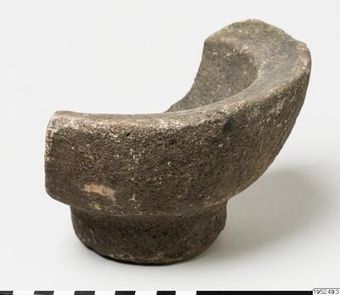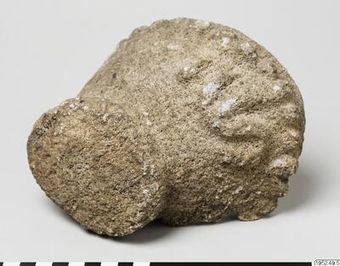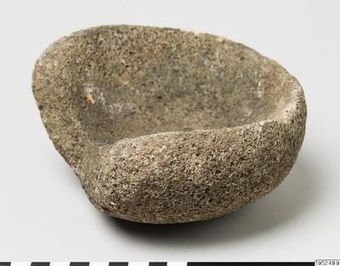Betty Curnow's shirt fragments
- Description:
- Contains pieces of Britway cotton fabric with a cacti and sombrero print that was used by Betty Curnow. Curnow initially made a shirt for herself from the fabric, which was featured in Rita Angus’ 1942 ‘Portrait of Betty Curnow’. In the 1950s Curnow recycled the shirt and made it into a two-piece bikini for herself. These fragments include pieces with darts sewn in and are likely to be off cuts...
- Display date:
- [ca 1940s to 1950s]
- Location:
- Tonga
- Format:
- Item
- Collections:
- TAPUHI
- Content partner:
- Alexander Turnbull Library
- Availability:
- Not specified
-
Copyright status: UnknownFind out more about what you are able to do with this itemWe haven't been able to determine the rights status of this item. It may be suitable for sharing, modification and commercial use, but you will need to check with Alexander Turnbull Library about its specific terms of use, and may need to undertake research to find the creator and publisher of each object to determine this. For more information, please see our use and reuse page..What can I do with this item?Non-infringing useNZ copyright law does not prevent every use of a copyright work, and this item may be hosted by an international institute or organisation. You should consider what you can and cannot do with a copyright work.Check before sharingYou'll need to confirm with the copyright holder before copying and/or sharing this item with others. This includes posting it on your blog, using it in a presentation, or any other public use.Check before modifyingYou'll need to confirm with the copyright holder before modifying, remixing, or building upon this item.Check about commercial useYou'll need to confirm with the copyright holder using this item for commercial purposes.
Related items
Welcome and warm Pasifik greetings
The information on this site has been gathered from our content partners.
The names, terms, and labels that we present on the site may contain images or voices of deceased persons and may also reflect the bias, norms, and perspective of the period of time in which they were created. We accept that these may not be appropriate today.
If you have any concerns or questions about an item, please contact us.


